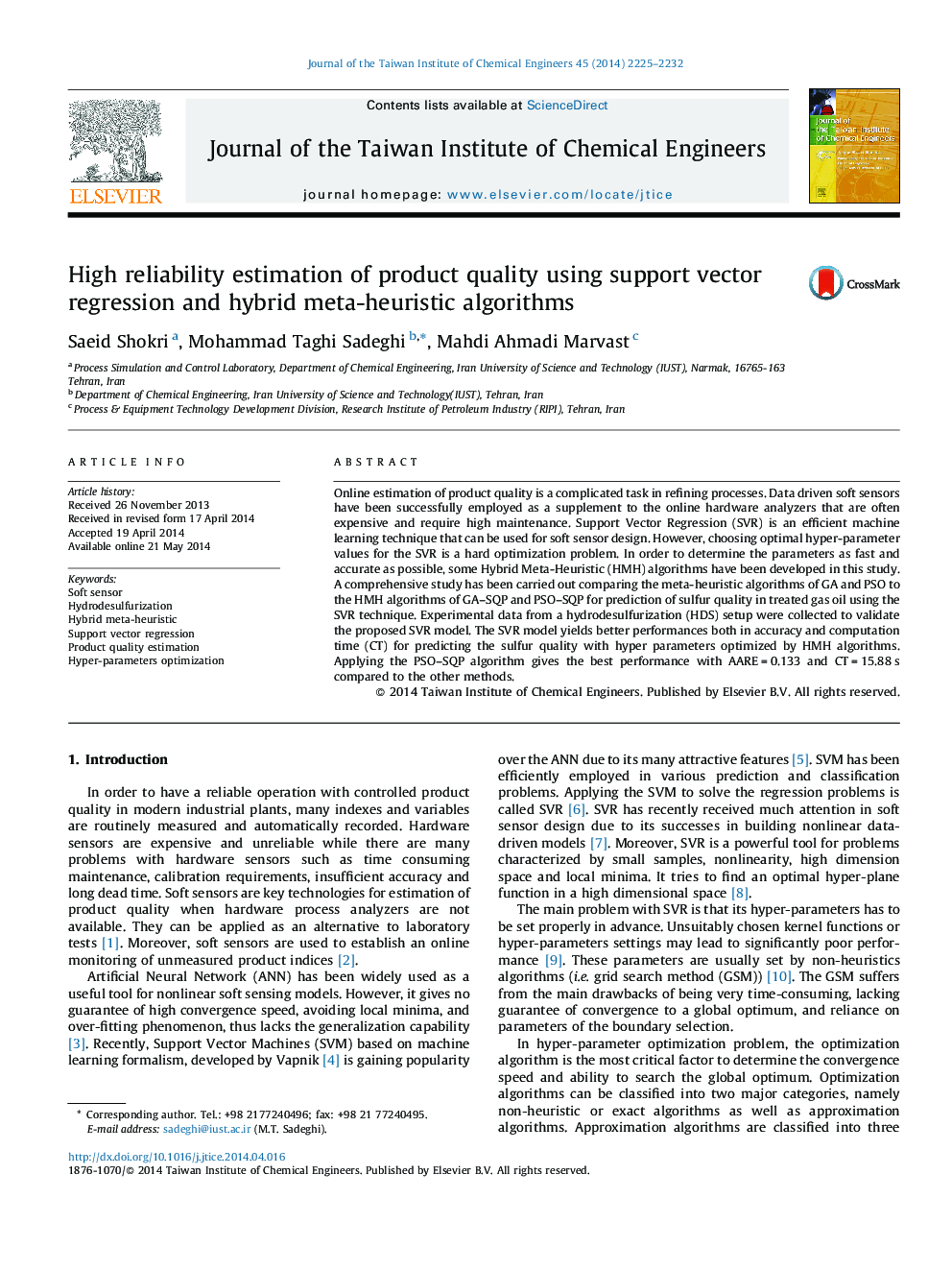| Article ID | Journal | Published Year | Pages | File Type |
|---|---|---|---|---|
| 691482 | Journal of the Taiwan Institute of Chemical Engineers | 2014 | 8 Pages |
•Design of a robust data-driven soft sensor using support vector regression (SVR).•Enhancing reliability prediction of the SVR by hybrid meta-heuristic (HMH) algorithms.•Automated prediction of sulfur content in hydrodesulfurization (HDS) process.•A novel approach for tuning the SVR hyper-parameters utilizing the HMH technique.•The PSO–SQP approach can speed up computing time and improve accuracy of the SVR model.
Online estimation of product quality is a complicated task in refining processes. Data driven soft sensors have been successfully employed as a supplement to the online hardware analyzers that are often expensive and require high maintenance. Support Vector Regression (SVR) is an efficient machine learning technique that can be used for soft sensor design. However, choosing optimal hyper-parameter values for the SVR is a hard optimization problem. In order to determine the parameters as fast and accurate as possible, some Hybrid Meta-Heuristic (HMH) algorithms have been developed in this study. A comprehensive study has been carried out comparing the meta-heuristic algorithms of GA and PSO to the HMH algorithms of GA–SQP and PSO–SQP for prediction of sulfur quality in treated gas oil using the SVR technique. Experimental data from a hydrodesulfurization (HDS) setup were collected to validate the proposed SVR model. The SVR model yields better performances both in accuracy and computation time (CT) for predicting the sulfur quality with hyper parameters optimized by HMH algorithms. Applying the PSO–SQP algorithm gives the best performance with AARE = 0.133 and CT = 15.88 s compared to the other methods.
